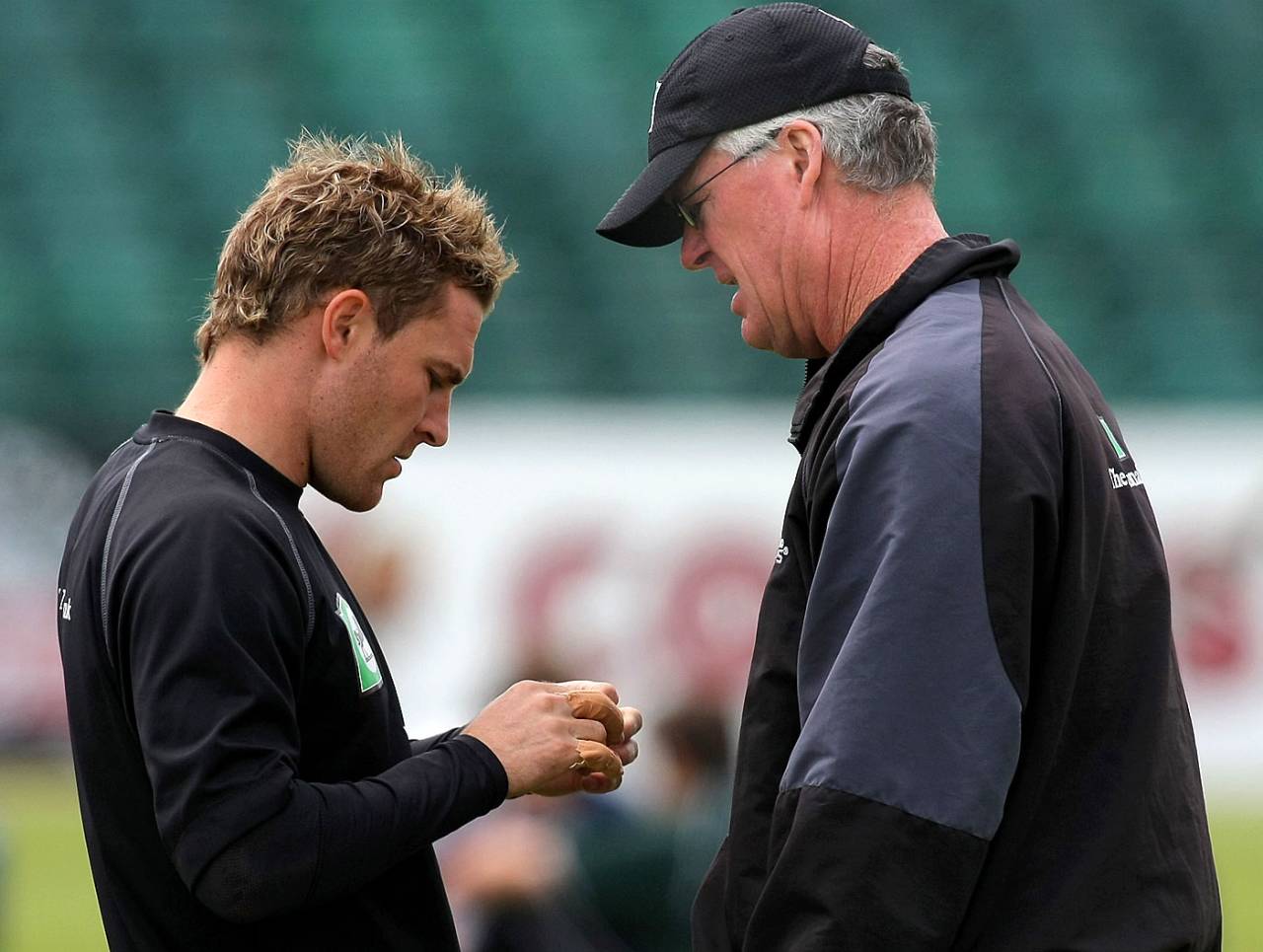Ireland have made clear their ambition to become the European New Zealand. The parallels between the two countries are obvious - both have similarly sized populations and have historically been overshadowed by noisy neighbours, but have gained a reputation for being shrewdly run and excelling at world events.
Of course, New Zealand are rather further ahead in their development than Ireland. So perhaps it makes sense that Ireland's new
choice as coach, replacing Phil Simmons, is a New Zealander:
John Bracewell, who coached New Zealand between 2003 and 2008.
"The parallels are really clear. The against-the-odds underdog-type tag, a bit like New Zealand cricket, attracted me," he said. "There's a lot to be drawn from the New Zealand experience that I can bring to the party having gone from that 1970s period to the current situation they find themselves in."
While New Zealand have been a Test nation since 1930, Ireland have still never played a Test match. The creation of the
Test Challenge in 2018, which will pit the winner of the Intercontinental Cup against the lowest-ranked Test side in four matches, with the promise of promotion to Test status, means that could change within four years.
Bracewell's contract is only until the end of 2017, but he intends to lead Ireland to a historic first Test in 2019. "I think it's a great cause," he said. "My personal goal is to be almost a trailblazer - that's a nice thing to try and achieve as a coach.
"At the interview it was clear they not only had it as a goal, they were starting to put the foundations in place to achieve that goal. My job is to make sure that the team is ready to go when that situation happens."
Bracewell will meet the team next Tuesday, but will not be in charge for the ODI against England on May 8. His first game will be the Intercontinental Cup game versus the UAE in June.
Ireland enjoyed an encouraging World Cup, defeating West Indies and Zimbabwe, although their bowling lack penetration and control in the absence of the injured Tim Murtagh and Boyd Rankin, who rejected Ireland's overtures to return for the tournament. "They had the right batting team - a 300+ batting side - but they didn't have a bowling side that could attack that total or defend it," Bracewell said. "It'll be a target of mine to try and develop greater knowledge of how you bowl on international surfaces."
Unlike Simmons, who split his time between London and Dublin, Bracewell will live full-time in Ireland after his work permit is completed. His responsibilities will extend beyond the national team to include the A side and the academy.
"It's an all embracing role. I enjoy being a coach as opposed to an international manager. That's the attractiveness of the whole thing - not just the cause, but being involved in the whole community. That suits who I am."
Most of Bracewell's success has come in limited-overs cricket. He won five one-day trophies during his first stint at Gloucestershire and lifted New Zealand to second in the ODI rankings for a period, as well as reaching the 2007 World Cup semi-finals. But he believes that New Zealand prove that success in limited overs cricket can provide a template for long-form success.
"They have almost now taken those skills of short-form cricket and turned themselves into a more competitive Test team by not trying to change it but enhancing it. They score at a better rate with the bat now, they attack more with the ball, they bowl better lengths in order to get results rather than avoid losing."
As they look to build upon their rise, Ireland are pushing for more fixtures, having only played nine ODIs against Test nations between the 2011 and 2015 World Cups, as they were not shy of pointing out. Bracewell stressed the need "to develop a longer-term fixture list", which has been a familiar refrain: Ireland's only guaranteed matches are an ODI against England every two years.
However, there are hopes that Ireland will be able to secure more games, especially if the ICC makes good on a mooted ODI fund to finance matches. Ireland are in advanced talks with Zimbabwe to tour this autumn, either before or after their Intercontinental Cup game in Namibia, and are hopeful that Zimbabwe will play in Ireland next summer.
Ireland also hope that the ICC's decision to contract the World Cup to ten teams in 2019 and 2023 may yet be reviewed at the annual ICC meeting in June. "Our understanding is that the strong preference from the Full Members is for a 10-team event," Cricket Ireland's chief executive, Warren Deutrom, said. "But equally there appears to be a recognition that it is worth considering alternative options that might hold more Full Members to account and permit more Associates to have a realistic chance of qualification."
Tim Wigmore is a freelance journalist and author of Second XI: Cricket in its Outposts
